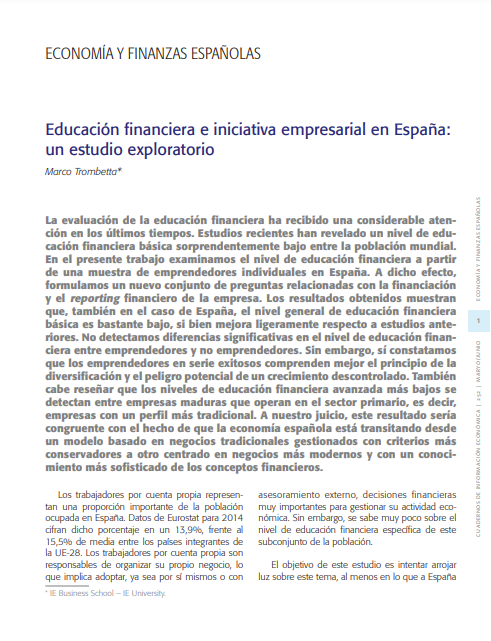SMEs
SMEs
ADVANCING RESEARCH TO CONTRIBUTE TO BUSINESS
Small and medium-sized enterprises (SMEs) largely constitute global productive businesses, contributing to the development of the local economy and job creation, while fostering competition. Their management capacity is essential for their survival and growth. Therefore, understanding the factors that determine the financial literacy of small business owners, and how this literacy impacts their financial decisions, is crucial. Only then can various stakeholders interacting with them—such as government officials, financial intermediaries, business associations, etc.—implement strategies and actions in the right direction to contribute to better financial decision-making in SMEs. This will result in greater resilience and survival, sustained business growth, and the attainment of profitability that compensates for the risks taken and boosts the creation of new enterprises. All of this will have a positive impact on job creation, economic growth, and the development of the local economy.
REPORTS

The Financial Behavior of SMEs in the Context of the Spanish Economy: Determinant Factors
PUBLICATIONS

FINANCIAL EDUCATION AND ENTREPRENEURIAL INITIATIVE IN SPAIN: AN EXPLORATORY STUDY
AUTHOR: MARCO TROMBETTA
In this paper, the level of financial education of a sample of Spanish entrepreneurs is examined. It is found that successful serial entrepreneurs better understand the concept of diversification and the potential danger of uncontrolled growth. The data indicates that companies with a more traditional profile (mature primary sector) have lower levels of advanced financial competencies.
